Seniors often get lonely as they grow older, and dogs can be wonderful companions. But finding a good fit is essential.
There are several great options when it comes to the best pets for elderly seniors, but few will match the companionship and comradery provided by a canine.
That being said, any dog, whether small or large, requires a significant commitment.
Dogs are not playthings, and bringing one into a senior’s home should not be taken lightly, as the senior will be required to provide appropriate care to the dog, including feeding, grooming, and regular walks. However, as long as a senior can manage those care requirements (or can get assistance from a friend or family member to ensure all the dog’s needs are being met), a dog is a wonderful household addition!
Generally, seniors should look for small dog breeds that are easy maintenance, low energy, and generally have an easy-going temperament and disposition – dogs who will give them plenty of cuddles without too much fuss!
In this article, we’ll talk about key traits and features to look for in a good dog for a senior, as well as list some of the best dog breeds we know of for senior living!
Why Dogs are Great for Elderly Seniors
Dogs are greatly beneficial for seniors because they provide a sense of companionship and security.
Dogs can be especially comforting for people who live alone and suffer from loneliness or depression. They offer friendship to those in need, and their unconditional love can help bring immense joy into someone’s life.
Studies have shown that pet ownership can help reduce blood pressure and cholesterol levels, decrease stress, and lower the risk of heart disease or stroke. Dogs also increase opportunities for exercise by walking a dog daily, and even can boost social interaction through attending dog parks or dog training sessions.
How to Choose a Great Dog for an Older Senior
Let’s jump into what you should consider when choosing a great dog for an elderly senior.
Energy Level / Exercise Needs
Most seniors will want to opt for a low-energy dog that doesn’t require a ton of exercise.
This means a lot of popular dog breeds like Australian Shepherds, Cattle Dogs, and Huskies are out. Few, if any seniors, will be able to handle the exercise needs of a high-energy or high drive dog. Instead, a senior will want to opt for a more mellow breed that doesn’t need to run a half marathon just to feel calm!
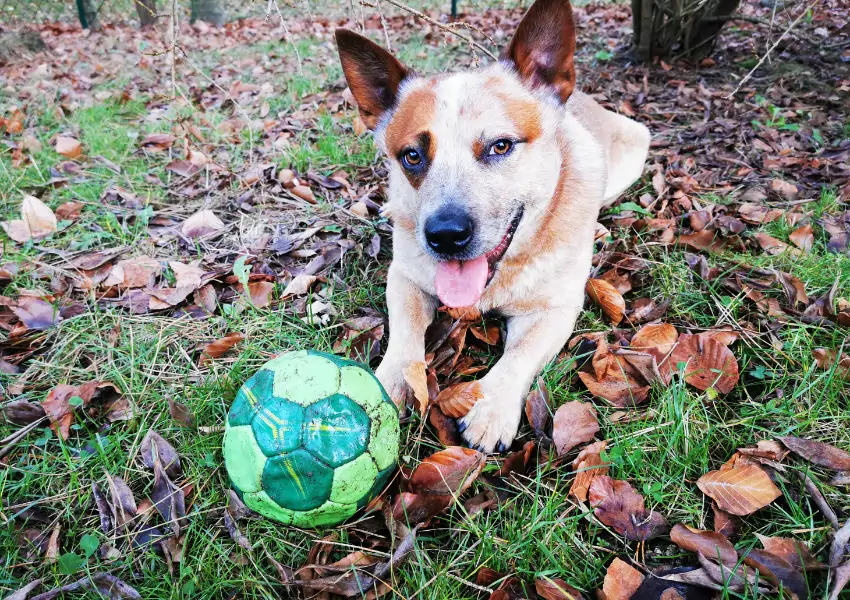
Please note that this doesn’t mean seniors will be able to find a dog that doesn’t need any exercise. All dogs, regardless of size or breed, will need – at a bare minimum – one or two 10 minute walks per day.
This is essential for a dog’s wellbeing. Playing, games of fetch, and running around a fenced-in yard are not adequate substitutes (although they are great supplemental activities in addition to walks).
Size
Most owners will have an easier time handling a small dog (roughly 20lbs and under) as opposed to a dog that weighs 50 lbs or higher. Small dogs are easier to control and walk; even if they pull on the leash, they won’t require a ton of strength for the senior to manage them, and are less likely to cause a senior to fall.
Small dogs are also easier to lift and carry if needed, and can be lifted into a car or small SUV with relative ease. This allows a senior to take their furry companion more places without it being a struggle.
Small dogs also generally have lower energy requirements than large dogs, which is ideal for seniors who have limited mobility.
As an added benefit, small dogs are also generally cheaper to own. From food to veterinary care, small dogs tend to end up with lower bills (although not to an enormous degree).
Lastly, while dog training is very beneficial for both the dog and the owner, small dogs tend to get away with a lot more than larger dogs. Most visitors won’t feel too put out if a small Bichon jumps up on their legs when they enter the door. However, an 80lb Labrador is another story!
Age
Some seniors may assume that they want a puppy, this is a bad idea across the board! Puppies have tons of crazy puppy energy that rarely meshes well with a senior’s more relaxed life pace.
Plus, puppies are hard work and kind of a pain (despite being adorable). Puppies have accidents. They chew furniture, they bark at the neighbors, they nip at your shoes. Trust me – the pains of puppyhood are (for many) not worth the agony. This is almost always true for seniors!

Instead, older owners should look for a more mature dog. Five and above is often ideal, as this is the age when many dogs start to really calm down. The other benefit is that by this are, dogs are generally well-established in their personality, so you’re less likely to see a dramatic personality change: what you see is what you get!
Plenty of older dogs can be found on Petfinder, as well as local shelters and rescues (make sure to ask shelters about pet matchmaking options). Want a dog from a breeder? Many reputable breeders will take back a sold dog if the original owner’s situation has changed or been compromised. This means that some breeders may end up with a four, five, or six-year-old dog (or older) who needs a new home.
Temperament
Elderly pet owners will most certainly want a dog who has an easygoing temperament. Seniors should look for small dogs breeds that are generally mellow and gentle-natured.
While it can be easy to fall for an especially shy or aggressively outgoing dog at a shelter (especially when they give you those big puppy eyes), it’s important to be realistic about a senior’s handling abilities and dog knowledge.
A fearful, anxious dog who was never well socialized will be challenging for a senior who loves to have friends over or go for walks around the park.
On the other hand, a dog like this may not pose any issue for a senior who rarely has company over and only intends to walk the dog down the street and back.
Grooming Requirements
Some dogs are a huge hassle to groom, requiring the senior to get down on their hands and knees and dig knots and mats out of a dog’s long shaggy fur, along with regular combing and brushing sessions.
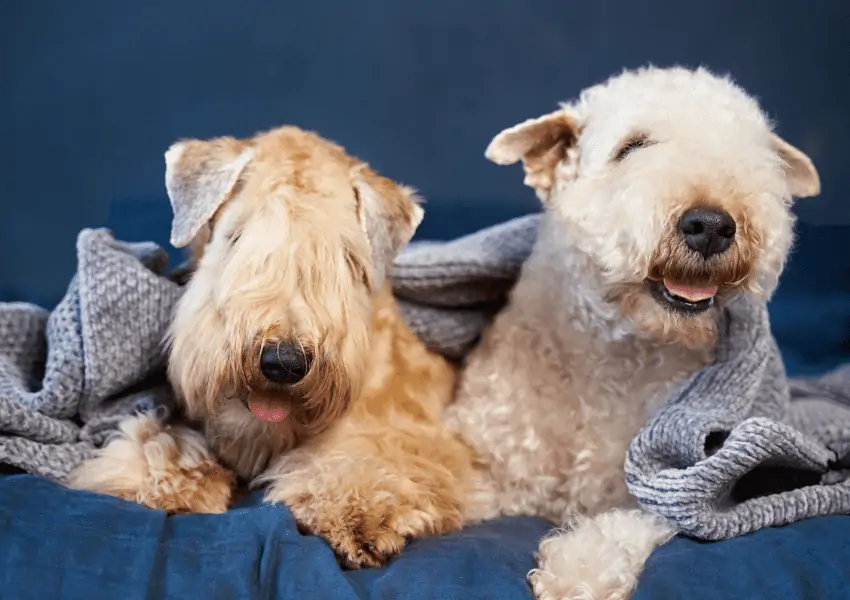
For this reason, many seniors will prefer a short-coated dog that requires minimal grooming. Just remember that all dogs need at least a quick brush-through weekly (the only exceptions would be hairless dogs)!
Small dog breeds are often easier to groom than larger dogs.
That being said, small dogs still have fur and will require regular brushing! Seniors with limited mobility should take care before adopting some of the breeds below, like small Poodle or Schnauzer, as these small coated varieties need extensive grooming that can be difficult for seniors without the strength needed to clippers and combs.
Of course, if a senior doesn’t mind paying for weekly or bi-weekly trips to the groomer, the type and length of the fur matters less.
Best Dog Breeds for Seniors
We’ve curated a list of some of the very best dog breeds for older seniors. This list isn’t comprehensive, as there are certainly other breeds that could be well-suited for older owners depending on their abilities. But, we feel these are some of the best!
1. Cavalier King Charles Spaniel
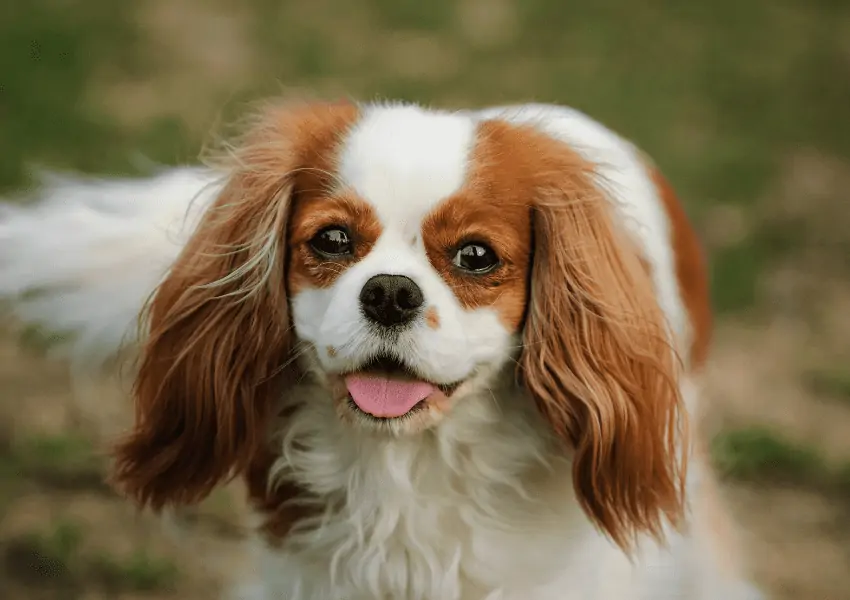
The small, sturdy Cavalier King Charles Spaniel is known for its gentle and docile nature. This small, spaniel-type dog is a very calm and easy-going breed. Generally weighing between 13-18lbs, the Cavalier King Charles Spaniel makes for a great choice in small breeds that senior citizens can easily handle.
This small dog breed tends to get along very well with children of all ages – including infants! It also can do great in multi-pet homes.
2. Maltese
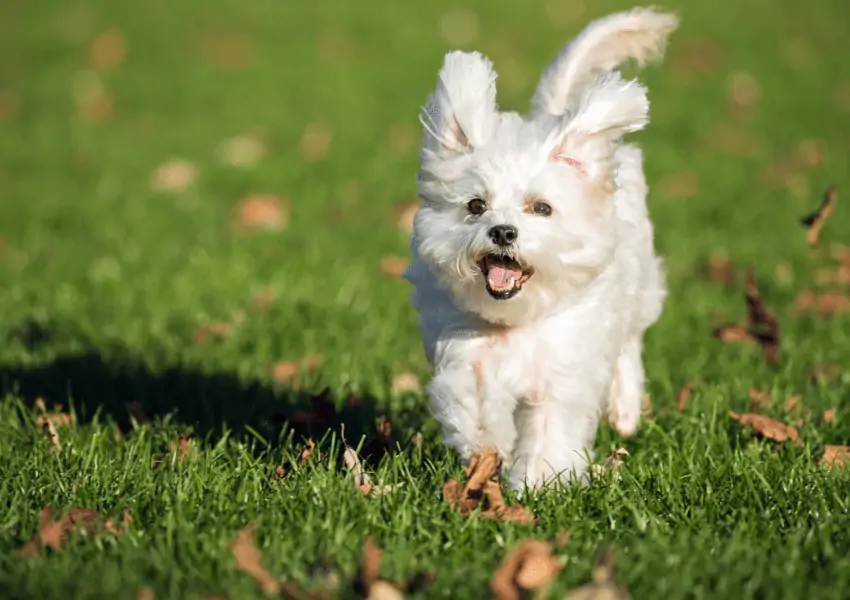
The small, long-haired Maltese is a lively and spunky breed that does great in small living spaces. This small dog has an average weight of 6-9 pounds when fully grown!
The Maltese boasts luscious long locks of silky white fur that requires daily brushing, but shouldn’t be above the needs of most average seniors. These dogs are also smarty pants that respond well to training, so seniors may enjoy teaching these dogs tricks to impress friends and family members!
3. Bichon Frise
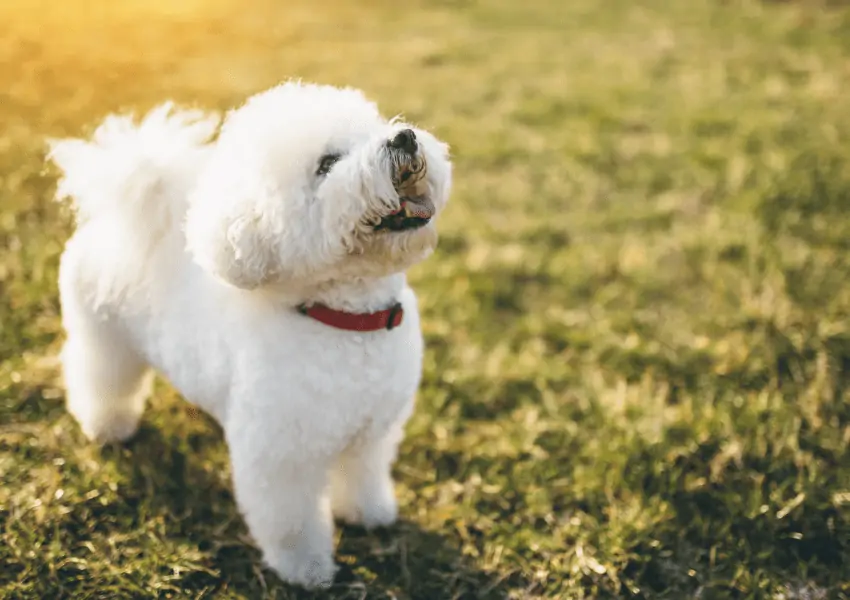
The small, fluffy Bichon Frise is another loving and gentle dog breed that tends to be calm and easy-going. They’re often touted as a dog with “one of the best personalities” due to their happy-go-lucky nature and ability to get along with other dogs and children alike.
Despite their gentle demeanor, these dogs are also smart and confident, making them well-suited even to the noise and bustle of city life.
This small pooch has a weight of 6 – 12 pounds when fully grown.
The Bichon Frise prides itself on its white hypoallergenic coat, which needs general brushing. These dogs don’t shed much since the shed hair gets caught in the dog’s undercoat. However, this means that the shed hair does need to be brushed out to prevent mats from forming.
Not to mention these dogs are some of the most adorable around – those cute button eyes have won over many a senior’s heart!
4. Pomeranian
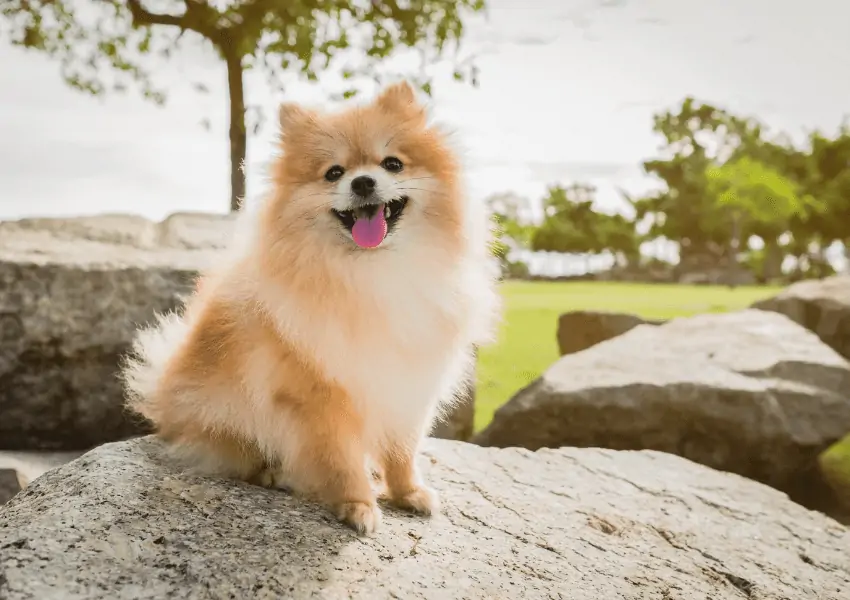
The small, fluffy Pomeranian is a great choice for seniors who live in small homes or apartments. Poms are ultra-compact, weighing in at just 3-7lbs, but there’s a lot of personality in these small packages!
This small dog breed tends to be energetic and playful – but can also do well with older children. With their bold, confident, and at times mischievous personality, it’s no surprise these pups resemble foxes!
Poms can get quite floofy, so regular grooming is definitely an important requirement.
5. French Bulldogs
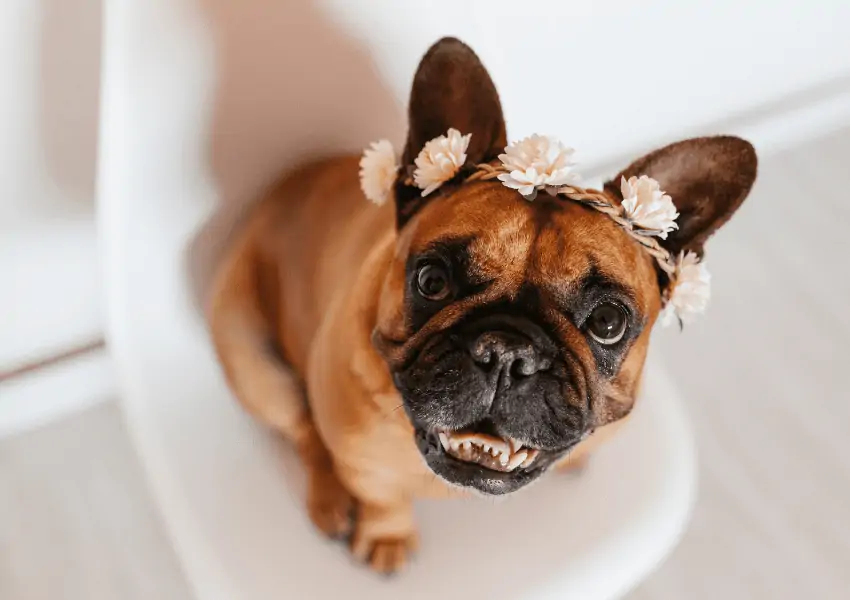
The small, stocky French Bulldog can be another great choice for seniors who live in small homes or small apartments, and many people find them irresistibly adorable.
This small dog breed is generally easy-going and hilarious to live with. The Frenchie also tends to have a very short coat which makes grooming a breeze! This small pooch has an average weight of 15 to 30 pounds when fully grown.
While Frenchies need some moderate walks to be happy, their squished noses make it dangerous to exercise them too rigorously. Their facial shape also makes them poor swimmers and susceptible to breathing problems, especially in hot and humid climates.
The downside is that Frenchies are very expensive, costing as much as $2500 or more per pup! These dogs are also controversial in some circles, with many arguing they should not be continued to be bred due to their unnatural, damaging breed standards.
Part of the reason why Frenchies are so expensive is that they are can only become pregnant through in-vitro fertilization, and litters of pups must be delivered by C-section because of their large heads and small hips, which lead to complications when birther naturally.
6. Boston Terrier
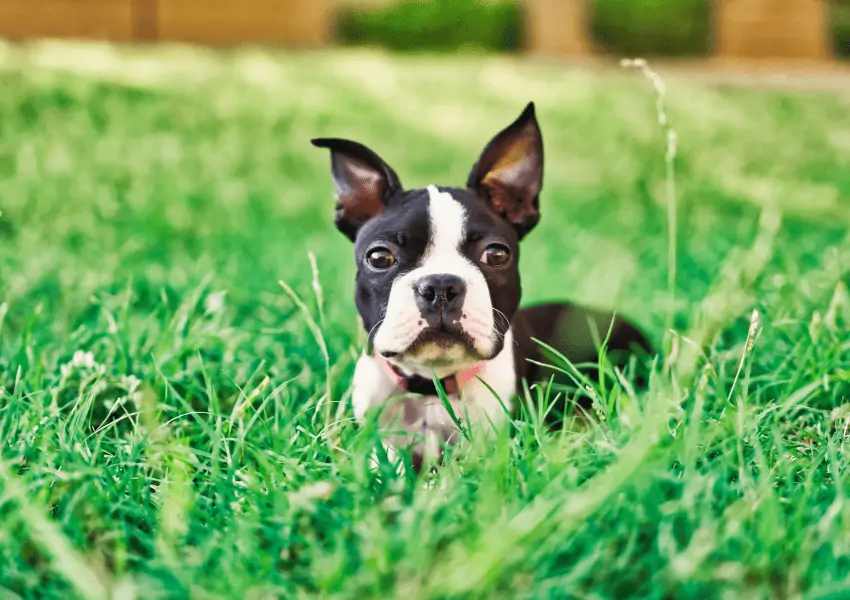
The small, sturdy Boston Terrier is another solid pick for seniors with limited mobility. The Boston Terrier weighs an average of 10 to 25 pounds and has a short coat that only needs minimal brushing, along with a flashy black and white tuxedo pattern.
Boston Terriers are known for being comically silly and good-natured. Well-balanced and curious, this is another breed known for being a great urban city dog.
7. Pug
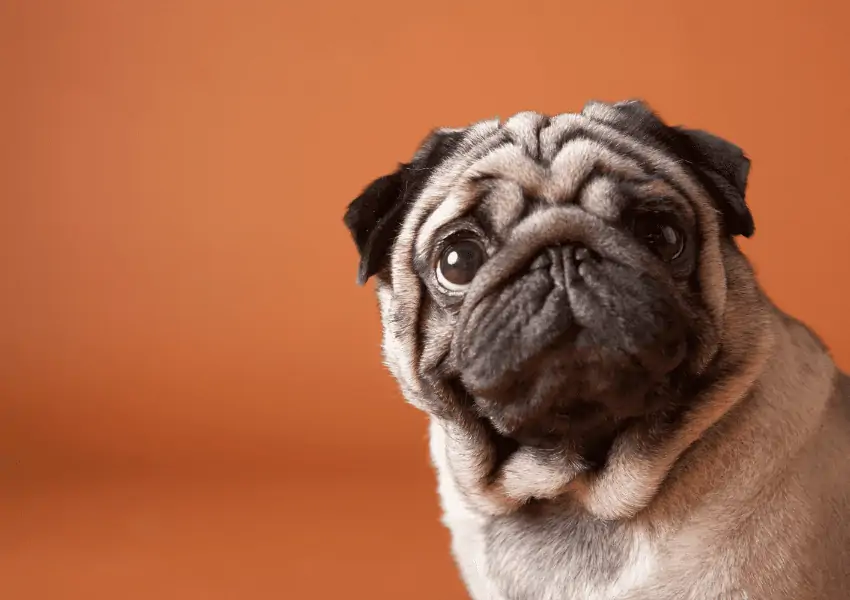
Pugs are known for their comical faces and small, stout bodies.
This small dog breed has an average weight of 14 to 18 pounds when fully grown. Pugs are generally small and don’t take up a lot of space, which is perfect for seniors who live in small homes or small apartments! Pugs have a very short coat that only needs minimal brushing – plus, pugs have a sweet face that’s easy on the eyes.
Pugs tend to be low-energy dogs that usually do well with older children (and other pets). With bright and expressive faces, owners of Pugs love the myriad of expressions they tend to exhibit, often full of charm and curiosity!
8. Chihuahua
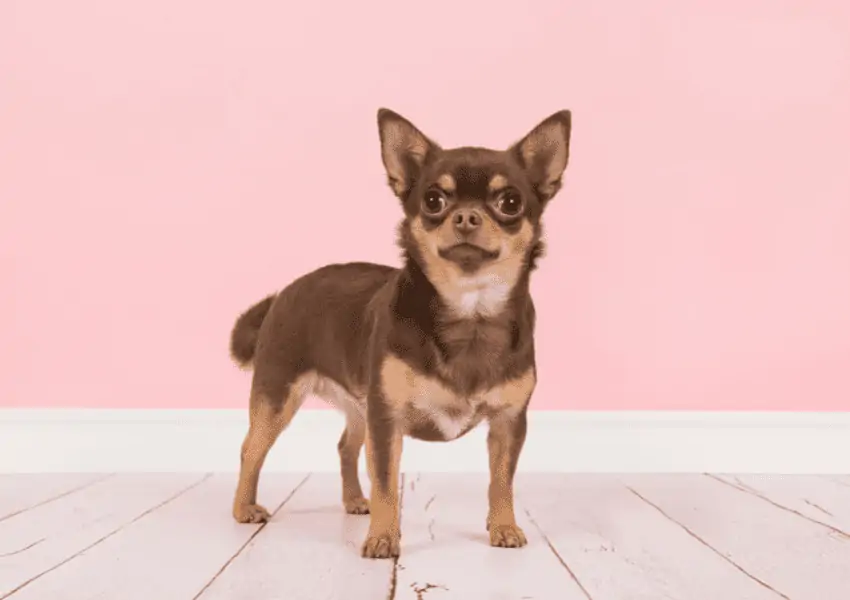
The small, lively Chihuahua can be a fun choice for small living spaces. While Chihuahuas can get a bad rap for being yappy, if treated with respect, Chihuahuas can be delightfully calm, confident, petite pooches.
This small dog has an average weight of 3-7 pounds and tends to have very short hair that doesn’t require much grooming (and sheds little). The Chihuahua is generally small, curious, and energetic (although several 10-20 minute walks should do just the trick). Small and light, they are usually easy to handle even for a limited-mobility senior.
These confident and sassy pups do require some basic training, as their big-dog energy can get the best of them at times!
It’s not unusual for Chihuahuas to dislike other pets and avoid small children, so they are best in an adult-only household (usually due to children’s roughhousing that can be intimidating for these little guys).
9. Havanese
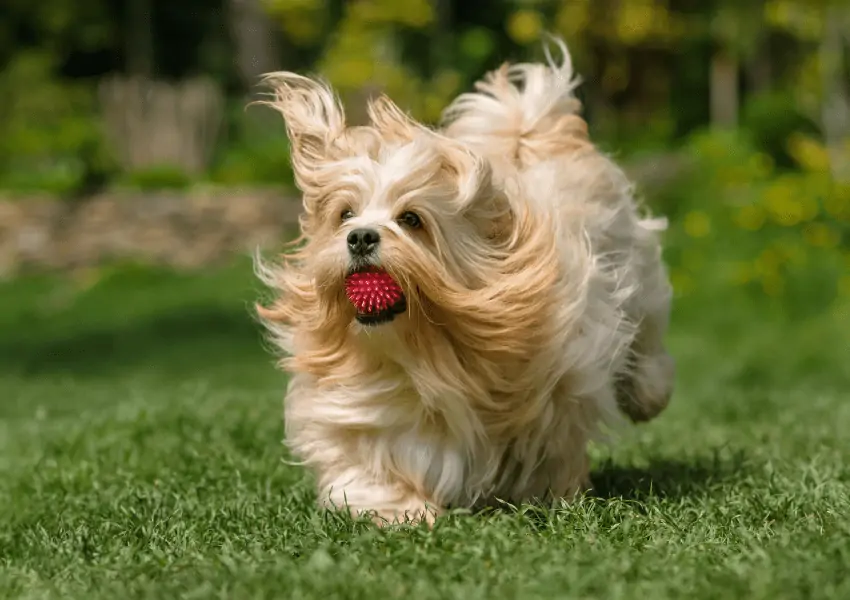
The small, squat Havanese is another small dog breed that’s perfect for seniors with limited mobility. Weighing in at roughly 10-15 lbs, they’re small but not tiny.
Havanese are small but sturdy, and have a long coat silky coat that doesn’t shed much but does require daily brushing.
This small dog breed is known for being very people-oriented, affectionate dogs that love to be the center of attention! With their cheerful and sociable nature, they make great lap warmers for those cold winter nights – plus they’re smart as whips and can be trained to do fun tricks. In fact, they’re natural trick dogs, with comedy stylings of a clown and the eagerness to soak in the attention of their two-legged admirers!
10. Yorkshire Terrier
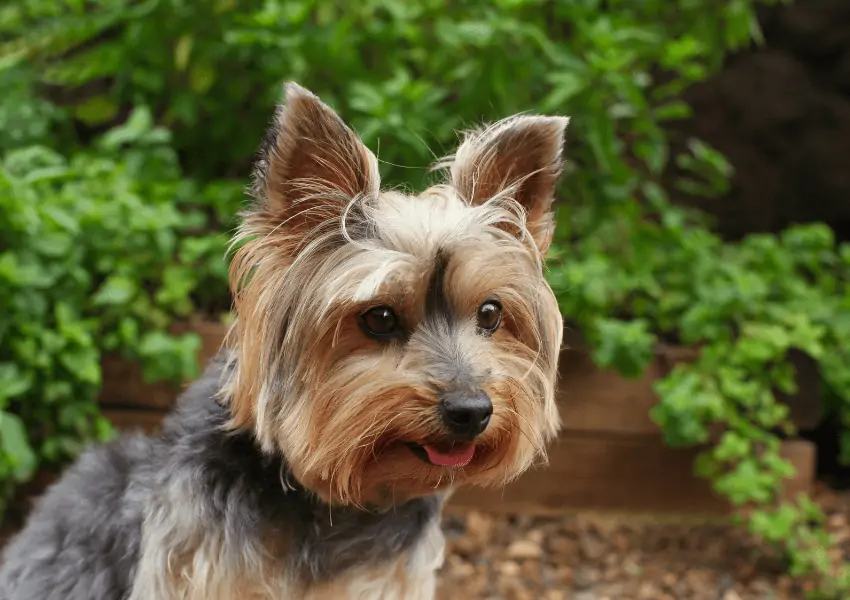
Yorkshire Terriers are small, sweet pooches that tend to be low-energy and calm.
This super small dog breed has an average weight of four to seven pounds, making it a popular pick for limited mobility seniors who want a dog they can easily pick up and maneuver without straining themselves.
These toy-sized terriers boast a long, silky coat. Despite being long, their coat is hypoallergenic and more akin to human hair than fur, and only requires normal daily brushing.
Despite their small size, they have all the bravery and tenacity found in any other terrier breed! Fun and full of personality, their confidence combined with their general good nature makes them a great fit for urban life.
11. Shih Tzu
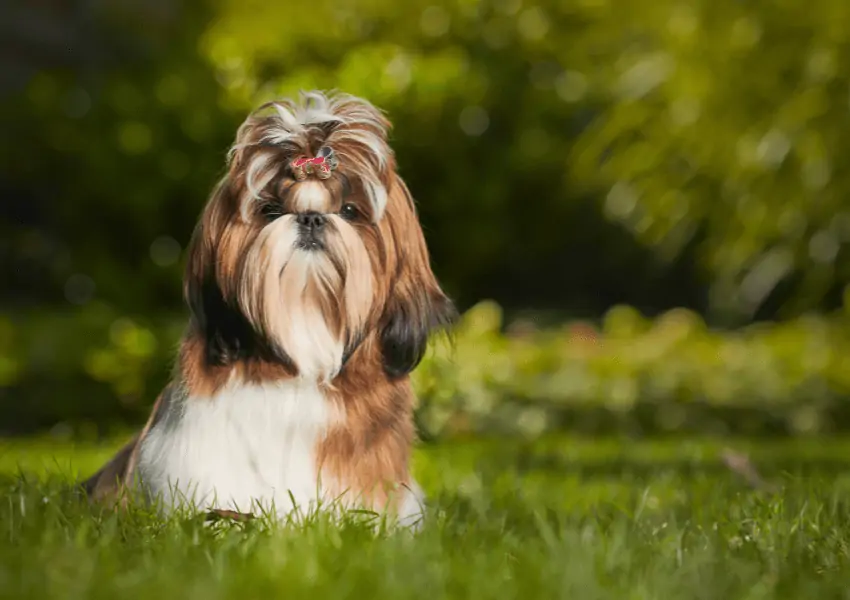
The small, sturdy Shih Tzu can be a great small dog breed for elderly individuals with limited mobility. The Shih Tzu is known as being happy-go-lucky, affectionate, and cute as heck!
Charming and sweet, these pups often get along even with other animals and children.
This small pooch has an average weight of 8 to 16 pounds when fully grown and tends to their long hair requires daily brushing. A well-groomed Shih Tzu is a sight to behold, so consider enlisting help from a good groomer!
Possibly Good for Seniors – Maybe!
Next, we have some dogs that could be suitable for seniors, but aren’t as sure of a thing as the breeds listed above. These dogs usually have additional grooming or exercise requirements that some seniors can handle, while others cannot.
12. Corgi
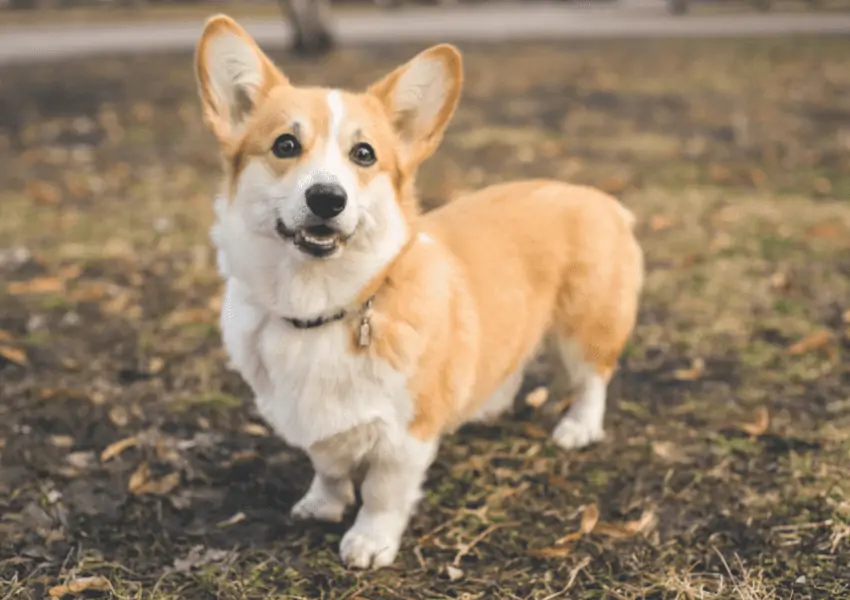
Corgis are small, outgoing, and playful dogs that captivate many with their bright personality and adorable peach-looking behind!
This small pooch has an average weight of 20 to 30 pounds and has a weatherproof double coat, featuring a soft undercoat covered by a coarser outer coat. This double coat equates to a fair amount of shedding – especially with the changing of the seasons.
These dogs are low-to-the-ground but also athletic. Used to herding animals on the farm, they require more exercise than your average small dog.
With all the fearlessness and confidence of a working farm dog, many fall in love with these dogs for their clever determination, smarts, and undeniable cuteness factor. Their confidence and independence can have a downside, as these pups can get a bit stubborn, but Corgis can easily be trained with plentiful treats and small amounts of patience.
These dogs don’t tend to fit in well with small children, due to their tendency to herd little ones!
13. Italian Greyhound
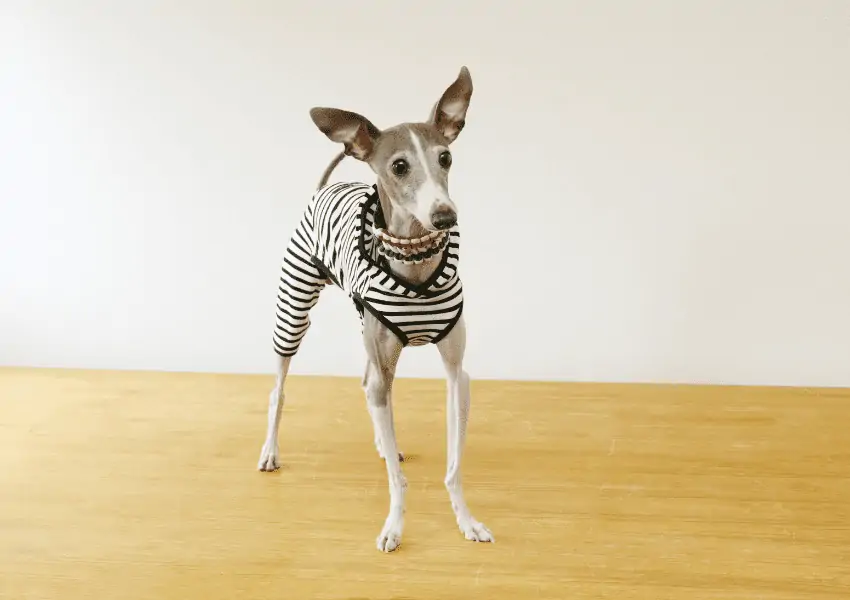
The petite, delicate Italian Greyhound has an average weight of 8- 13 pounds when fully grown.
These alert, affectionate pooches are Greyhounds in miniature, with the same sleek grace found in other coursing hounds. Charming lapdogs, they will happily cuddle on your lap – until they dash off after a squirrel in the yard!
They also tend to have a small, short coat that doesn’t require a lot of brushing or grooming. However, this thin coat and skinny build means that these dogs don’t thrive in cold weather and will likely need jackets and booties to safely adventure outdoors in the cold.
14. Miniature Poodle
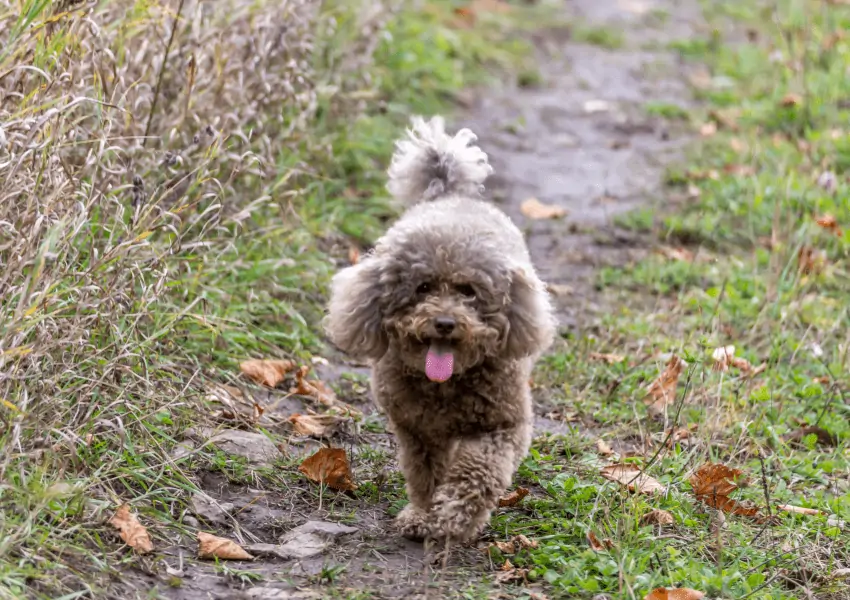
The small, sturdy miniature poodle is another small pooch that’s perfect for tight living spaces. Athletic and eager, these extraordinarily smart dogs excel at dog sports like agility, as well as at-home trick training.
These clever dogs require more exercise than the average small dog, but supplement walks with challenging puzzle toys and trick work, and your poodle should be satisfied.
The miniature poodle has an average weight of 10-15 pounds, with smaller versions found in the toy poodle, and larger dogs found in the standard poodle. The poodle generally gets along well with kiddos too!
With a non-shedding hypoallergenic curly coat, poodles tend to be popular with those who suffer from allergies. Poodles need to be brushed daily to prevent mats if their coat is kept long – however, many owners opt to keep their poodle clipped in a short trim, with can be much easier to maintain.
Learn to clip the poodle’s coat yourself, or be prepared to visit the groomer every 4-6 weeks for a full grooming session.
15. Mini Schnauzer

The Mini Schnauzer is an affectionate, friendly dog that tends to get along great with the entire family (although other pets may be the exception).
Bred down from the Standard Schnauzer, these dogs are fawned over for their uniquely bushy beard and eyebrows, providing a wealth of human-like expressions
This small dog breed has an average weight of 11 to 20 pounds when fully grown.
Despite their smaller size, they are farm dogs to heat, with a muscular, athletic build to match. Bright, friendly, and fearless, they manage to be tough without being aggressive and are highly trainable due to their clever brain.
While they do well in apartments, they’ll need plenty of vigorous play, walks, and challenges to feel content.
The mini Schnauzer has a double coat that results in little to no shedding, but requires frequent brushing to prevent mats. Alternatively, owners can keep their coat trimmed short to make mats less likely.
16. Greyhound
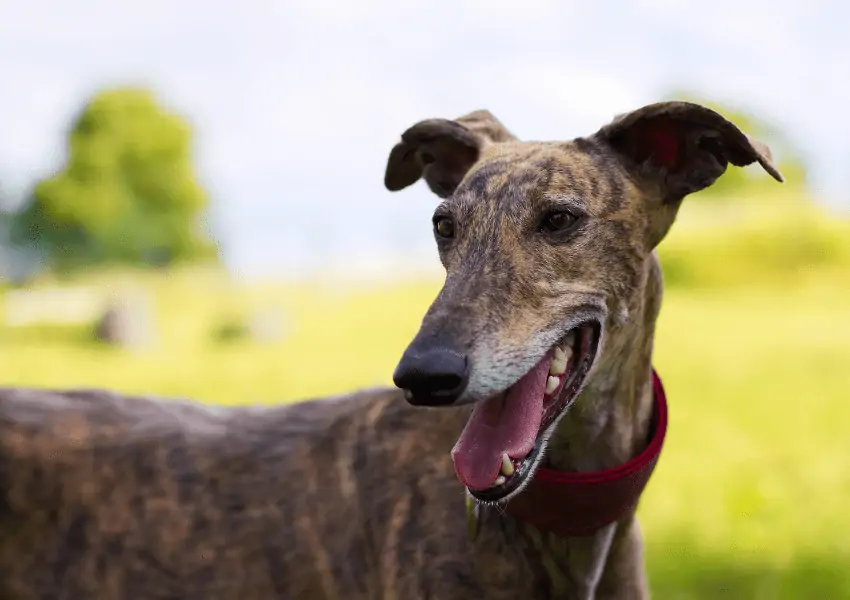
Greyhounds aren’t small dogs like the others on this list, but we think they make a great option for seniors!
Greyhounds are laid-back, calm dogs that may not be the best choice for small kids, but they do tend to get along well with older families.
These dogs can be couch potatoes who love cuddling up on extra-soft beds – perfect choices for seniors! However, Greyhounds still also need daily walks and will benefit from regular playtime as well. That being said, they certainly don’t require any extreme exercise regiment you’d expect from such speed demons!
These large average weight of 60 to 70 pounds when fully grown and tends to have a small, short coat that doesn’t require much grooming. Just weekly rubdowns are usually enough for these low-maintenance long boys!
Since the Greyhound is generally calm and independent, they can do well with apartment living so long as they get plenty of outdoor time too.
17. Golden Retriever
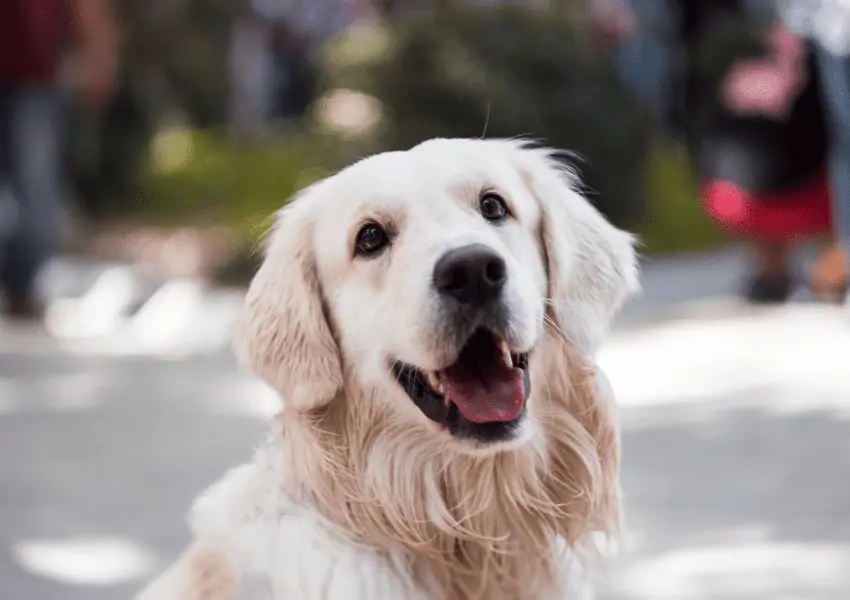
No list of the best dogs for anything is complete without a Golden!
Golden Retrievers are one of the most popular small dog breeds out there today, and with good reason! These gentle dogs are loving, loyal companions that are perfect for families.
In demeanor, few others are as sweet and loving. Friendly to other animals and children alike, they do well in a variety of home settings.
That being said, like any retriever dog initially bred for sport, these dogs have significant energy needs – especially when younger. Owners will need to be ready for several medium to long walks a day along with plenty of outside romping and play. Enlisting the help of a walker or doggie daycare may be a smart way to burn off some of that excess Golden energy!
These dogs have an average weight of 65 to 80 pounds, making them at times challenging to handle for someone with limited mobility. For a senior owner, early loose leash walking training will be essential. Luckily, these dogs are eager to please and often easy to train.
Goldens generally only need to be brushed a couple of times a week, but they will heavily shed their thick double-coat a couple of times a year, which can cause a fur-pocalype, so be prepared with a heavy-duty vacuum!
Most of the dogs on our list are smaller since they tend to be easier to handle for older individuals and usually have lower energy levels (this isn’t true for all small dogs though, so do your research)!
If you are considering a small-sized dog breed, be sure to consider what kind of lifestyle the elderly have – don’t get your senior citizen parent an active little terrier! However, there are plenty of small dogs that will make great small dogs for seniors.
Try Adopting!
While the initial instinct for some may be to find a local breeder, seniors should consider looking at local shelters and breed rescues for a new furry companion.
Of course, you’ll want to do your due diligence when considering adopting, asking shelters about the documented history of the dog, while the dog was surrendered, etc.
However, for seniors who are looking for an older, lower-energy dog who won’t be as rambunctious as a puppy, adopting a senior dog can be a great fit!
Alternatives to Owning a Pet Dog
Not sure you or an older loved one are really ready for the responsibilities of dog ownership? There are always other options.
- Robot Dog. Stuffed robotic dogs have become very popular for elderly individuals with dementia. These soft robotic animals will cuddle and even make noise, providing great comfort to declining seniors who aren’t able to care for a real pet.
- Visiting Therapy Dog. Visiting therapy dogs are another alternative to bringing a small dog into the home. If a senior can get regular access to fun and cuddles provided by a therapy dog, there’s little reason or them to take on the pressures of pet ownership themselves.
- Cat. There’s no denying that cats are significantly easier to own than dogs. They are more independent, don’t require outdoor walking, and won’t risk knocking you over when excited. While some cats will avoid their senior roommate, others are full of endless cuddles. A friendly cat can make a wonderful senior companion!
Seniors can get lonely as they get older, and pets are often wonderful companions. When considering a dog, seniors should look for small dog breeds that are easy to take care of, have limited energy, and have a generally easy-going personality.
Did we miss any other great dog breeds for seniors? Let us know in the comments!


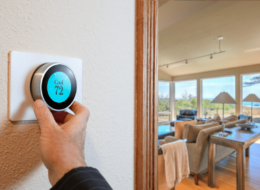


In the list of dog breeds, You have Corgis. They are wonderful, fun, great dogs except you forgot to mention the only major draw-back: grooming and shedding. I had one and loved her dearly but her coat drove me crazy.
I am not saying not to list them as they are wonderful companions, just be certain to warn that they need combing and brushing daily and sometimes more. This would be good for someone who is alone and at home all day but not for a senior who has low vision or is involved with outside interests. Thank you for the list!!! I have an adult, mentally handicapped son who I have brought out of supported living since COVID has curtailed their activities. He lost suddenly his eyesight when he was 41. I want to get him a dog but the miniature dachshunds he had growing up could trip him and I didn’t know what breed would be best for him. Because of your article, I will be contacting rescues about Boston Terriers. Thank you.
I read your information it was very enlightening. So I am a senior, suffer from a stroke, live alone and get a strong need for company/companionship. Grands visit far and in between. So which is good for me? I went to a shelter yesterday but they didn’t have the proper paper documentation of the one I liked. He didn’t respond to anyone. Before I invest in fencing in the yard and purchasing other items what should I know/do. Are they house trained already? I would be a first time owner.
i’m in reasonably good health for 81 tho recently recovered from back surgery walk about 3/4 mile per day widowed would like dog already trained ie 4-5 years old ..able to provide well for dog …would enjoy dog riding with me in car or truck anxious to get moving on this
My husband and I are seniors of 80 years in good health. We ah just lost our poodle of 12 years to cancer and are heartbroken as we really don’ know life without the companionship of a dog. e are looking for a small older female dog of 4 to 8 years.We own our own house which has a large high fence. We wouldn’t mind a dog that needs regular grooming as we had an excellent groomer for our previous Spoodle Pelli. Is there anyway you can help us adopt a asuitable dog? We have been looking for about 2 months now with no luck whatsoever.
I do hope you can help.
Kind regards, Renée Feikema
I’m close to 80, have a chow almost 13, we also have a Rottweiler ,almost 3 she’s really laid back, have large yard 6ft. fence , I don’t take for walks ,in this day and age you really have to be careful. , she chase balls a little. I’d like a Dobie, my kids think I ‘m nuts,so far in decent health. So guess what ever you pick, make sure its what you want, not something that will do.my problem is I love animals
I think you are missing Papillons! We have had “happy pappies” for years. None of our paps were particularly barky, as some call them “yappy pappys”! That has not been our experience. Extremely smart and easy to train, Papillons are wonderful companions. They also love cats! They do need to be brushed daily since they have fine hair and a silky coat. Papillons attach to their owners quickly, are good little alarm dogs if someone comes to the door and have great personalities! They can range from about 5 lbs to 12lbs, and have beautiful ears that look like butterflies (Papillon is French for butterfly.) Though very energetic when young, they are more mellow after 4 or 5 yrs. old. Some are lap dogs, some will sit next to you and most want to be where you are at all times. Last, we actually have a training school for dogs in our city that uses Papillons exclusively as therapy dogs!
Thank you for the tip! They sound like another great option for seniors 🙂